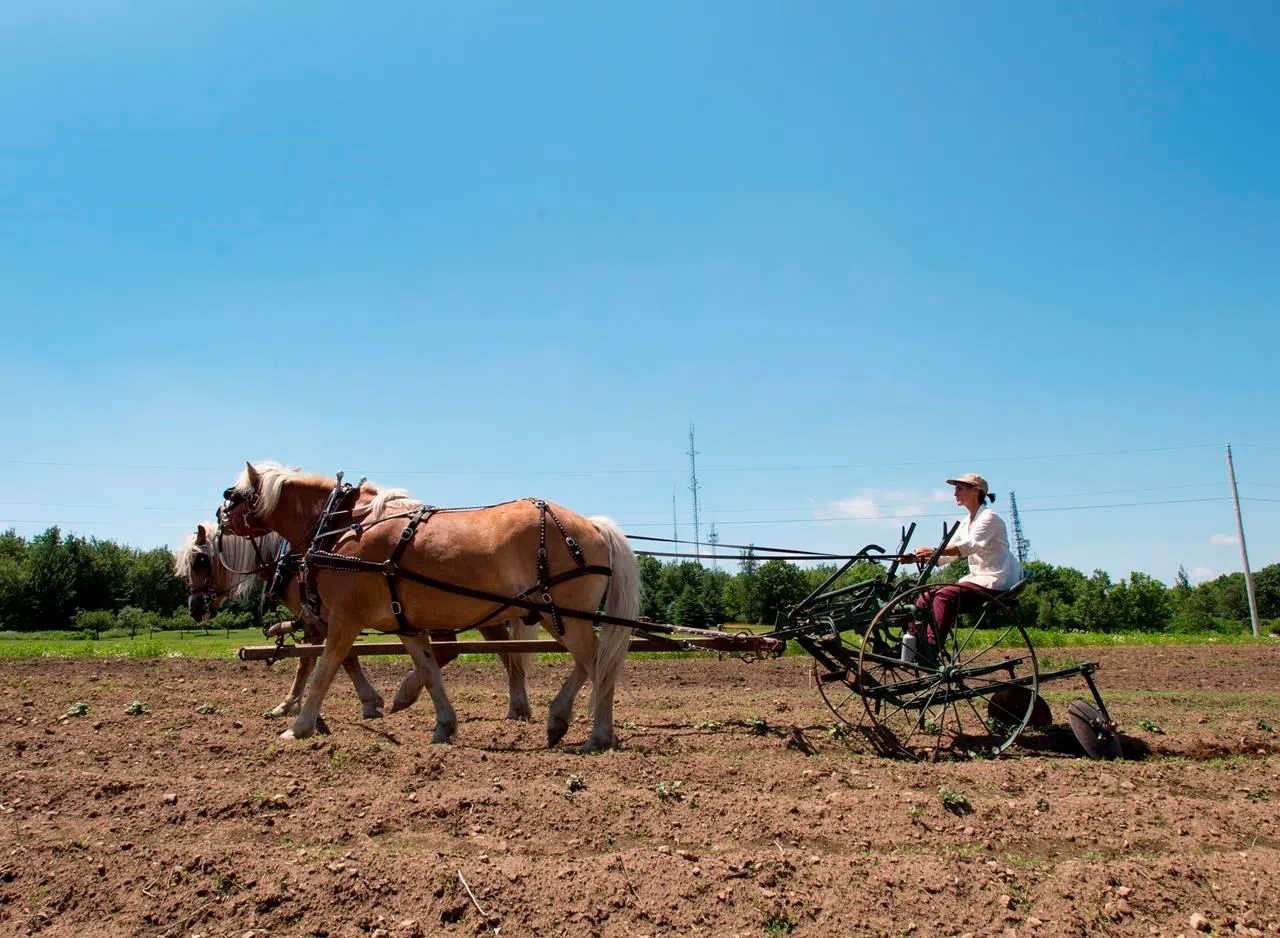
Why some Canadian farmers are still choosing horses over tractors
MONTREAL — Finding a tractor would have been easy, but Mylaine Massicotte wanted horses.
After her last draft horse died last fall, the 34-year-old spent weeks combing classifieds before bringing home Jack and Alfie — a pair of short, sturdy, Haflinger horses with their breed’s signature chestnut colouring and blonde manes.
From spring to fall, Massicotte’s slim figure can be seen walking or riding a small plow behind her team as she turns over the earth at Les Jardins d’en Haut, the small organic vegetable farm in she owns in Havelock, Que.
She’s one of a handful of small-scale farmers who mostly eschews tractors in favour of real-life horsepower, for reasons she says are both idealistic and practical.


